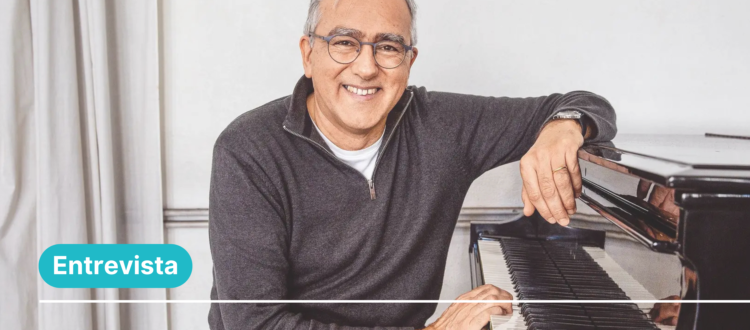À conversa com … #1 Luís Tinoco
The 1st episode of À conversa com… focuses on the work of Luís Tinoco, winner of the 38th Pessoa Prize.
À conversa com… presents a series of written interviews that highlight national or international awards given to CESEM researchers.
Question (Q): You are the third musical personality to be honoured with an award that aims to recognise those who stand out in Portuguese cultural and scientific life. You are also one of the youngest awardees. What does this award mean to you?
Answer (A): I see this distinction as a huge incentive and a recognition that could only honour me deeply. Composing music in the written tradition is, to a large extent, a solitary endeavour, and the results do not circulate at ease on our stages and in the media. In this sense, the attention of the Pessoa Prize Jury is of great importance, allowing me to attract greater visibility both for my work and for the music that is written and performed by my colleagues. I would be particularly pleased if this honour helped Portuguese music in a broader sense, not only in terms of the work of creation but also the work of performers and researchers.
Q: Along with being a composer, Professor, music programmer, and promoter, your path also includes research, and you are currently a member of CESEM. What are your main interests when it comes to thinking about music?
A: I am fundamentally interested in the phenomenon of creation. Finding answers to compositional problems, reflecting on the challenges posed by each new score, and thinking of solutions that allow me to evolve and renew my working methods. I am also very interested in paying attention to what is being created worldwide by musicians of different generations and styles. I am not interested in being locked into ‘tribes’ (my own or others’). I am interested in understanding and finding meaning in the practice of creation, especially at a time when much of the reality I observe is dark, unjust, and threatening. I am essentially interested in responding to the impulse of writing, yet without neglecting the search for the meaning of making music today.
Q: How do you characterise the relationship between your research and the rest of your activities? Please share a moment when your profile as a researcher or the results of your research helped you in another professional area.
A: My research activity is directly linked to the practice of composition. Writing a page of music involves effort and reflection. And, consequently, learning. I can then apply what I learn from this process to the way I teach and disseminate music, both in the academic context and in my other activities within the field of radio and the (occasional) artistic direction of projects and festivals.
Q: Your relationship with CESEM involves the hub at the Lisbon School of Music (ESML), where you are currently a Professor and once graduated in composition. Tell us a little about your relationship with ESML and what made you return home – after getting to know the Royal Academy of Music and the University of York.
A: I returned to my alma mater at the invitation of Christopher Bochmann, who expressed his desire to expand ESML’s teaching staff with teachers/composers who had different approaches to his own. I found this very stimulating. I felt it would allow me, as far as I was able, to contribute to building a diverse teaching staff. That has been one of the strengths of ESML’s Composition department over the years, offering students the visions of people who are so different and whose readings of the phenomenon of creation are sometimes profoundly antagonistic. This plurality, the fact that I was able to work with total freedom, and also my appreciation for the light of Lisbon are some of the aspects behind my decision to return.
Q: Is there any future project that you can share with us?
A: I am currently working on an orchestral piece for a ballet by choreographer Paulo Ribeiro, entitled ‘Louis, Lui’. This piece will premiere in December at the Cannes Dance Festival. I am also collaborating with the writer Luísa Costa Gomes to create a chamber opera ordered by the Commission for the Commemoration of the 5th Centenary of Luís de Camões.
We will be following Luís Tinoco’s journey closely. In the meantime, there will be other À conversa com…

